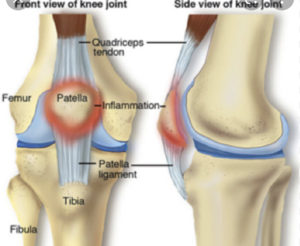Physical therapy is safe and effective for the treatment of many types of knee pain and patella femoral pain syndromes. A qualified Doctor of Physical therapy in Omaha should be able to determine the best course of treatment. At CORE, we look at the patient individually to make sure we treat the whole individual, and work with their goals. We design a treatment based on your strengths and weakness.
There is no more thorough rehab process in Physical Therapy in the Omaha metro area.
This is who we are, This is what we do.
. 2014 Oct;22(10):2264-74.
doi: 10.1007/s00167-013-2759-6. Epub 2013 Nov 13.
Patellofemoral pain syndrome
- PMID: 24221245
- PMCID: PMC4169618
- DOI: 10.1007/s00167-013-2759-6
Free PMC article
Abstract
The patellofemoral pain syndrome (PFPS) is a possible cause for anterior knee pain, which predominantly affects young female patients without any structural changes such as increased Q-angle or significant chondral damage. This literature review has shown that PFPS development is probably multifactorial with various functional disorders of the lower extremity. Biomechanical studies described patellar maltracking and dynamic valgus in PFPS patients (functional malalignment). Causes for the dynamic valgus may be decreased strength of the hip abductors or abnormal rear-foot eversion with pes pronatus valgus. PFPS is further associated with vastus medialis/vastus lateralis dysbalance, hamstring tightness or iliotibial tract tightness. The literature provides evidence for a multimodal non-operative therapy concept with short-term use of NSAIDs, short-term use of a medially directed tape and exercise programmes with the inclusion of the lower extremity, and hip and trunk muscles. There is also evidence for the use of patellar braces and foot orthosis. A randomized controlled trial has shown that arthroscopy is not the treatment of choice for treatment of PFPS without any structural changes. Patients with anterior knee pain have to be examined carefully with regard to functional causes for a PFPS. The treatment of PFPS patients is non-operative and should address the functional causes.
Level of evidence: V.

